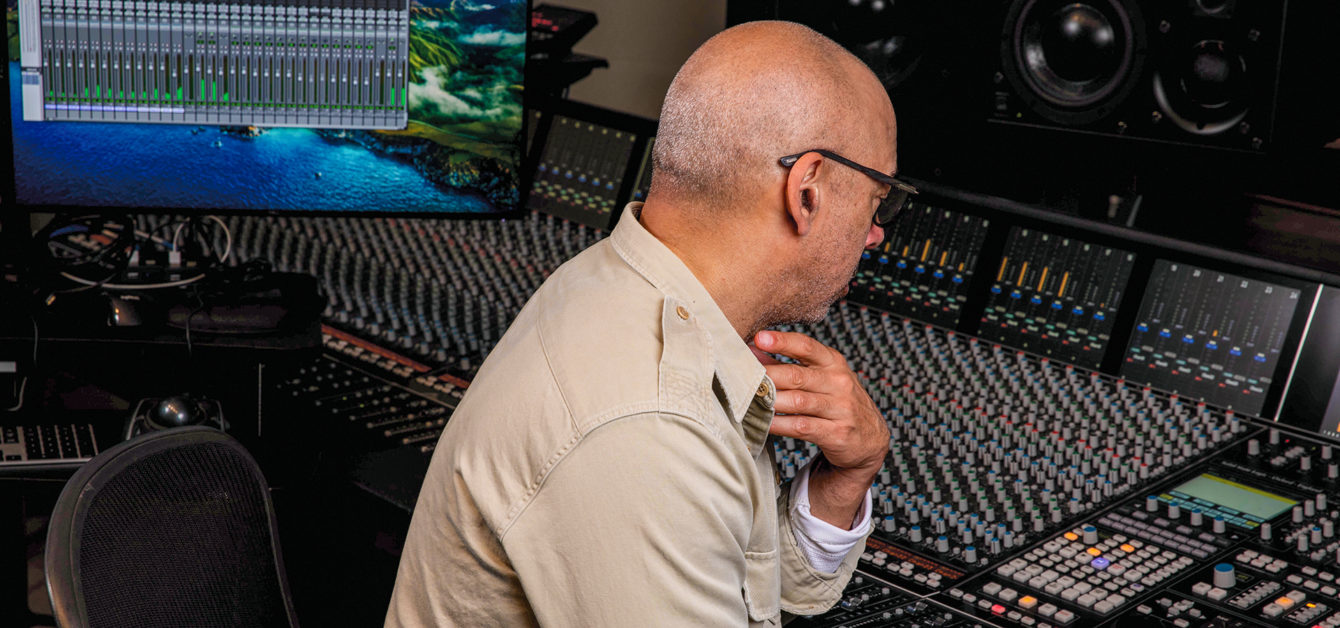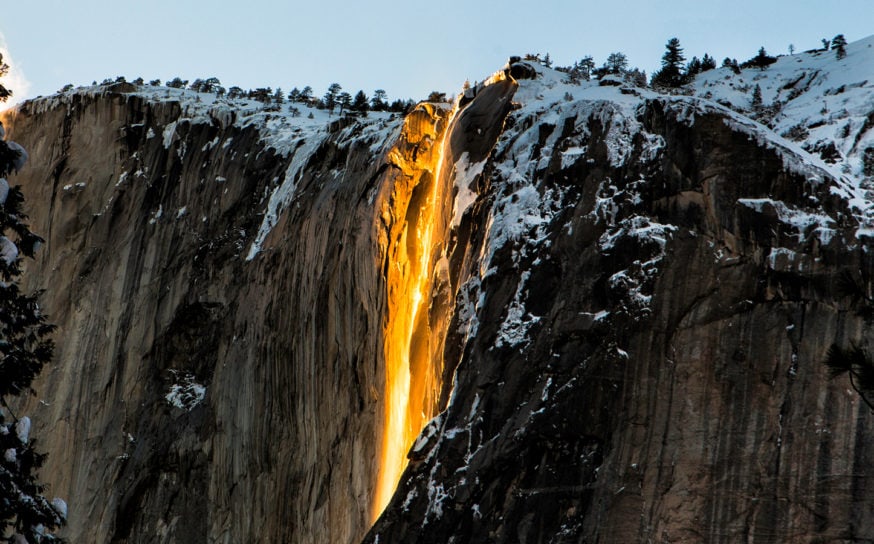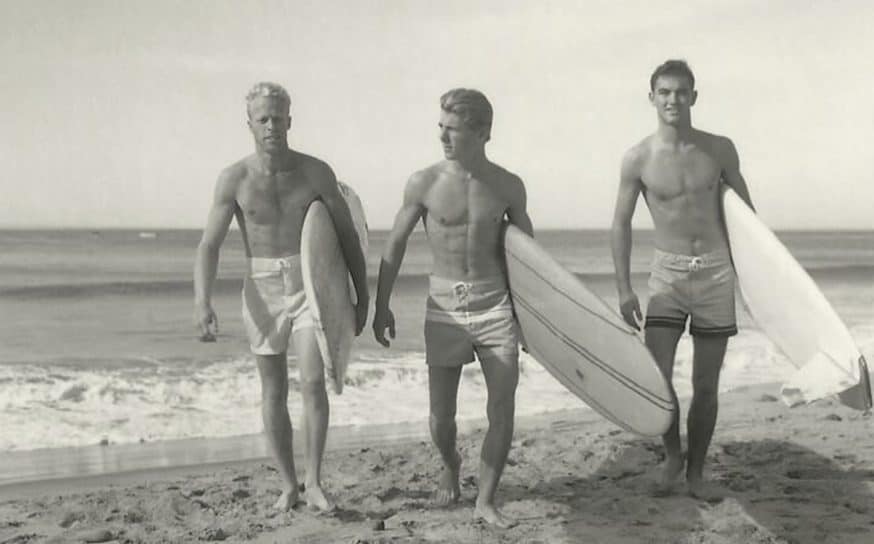Songwriter and Producer Harvey Mason Jr. Takes His Talent to the Next Level
Mad respect.
-
CategoryMusic + Podcasts
-
Written & photographed byKat Monk
Walking into the new studio of five-time Grammy-nominated Harvey Mason Jr. is a quick reminder of exactly how successful he has been thus far in his career. His namesake company recently relocated to The Evergreen Stage studio—originally built as a movie theatre in the late 1940s.

The walls are flanked with numerous A-list musicians he has worked with as either a music producer or songwriter on countless platinum albums. Those names include Jennifer Hudson, Kelly Clarkson, Michael Jackson and Justin Bieber. Another hallway showcases the major motion pictures he has worked on including Dreamgirls, Sing, The Wiz, Pitch Perfect and Straight Outta Compton.
But mention his kids, Trey and Mia, and he beams with even greater pride. The Masons raised their children in Manhattan Beach for well over 20 years. Both kids graduated from their parent’s alma mater, the University of Arizona. Trey is now an attorney at Granderson Des Rochers, a boutique Beverly Hills law firm. Mia, a former All-American scholar and athlete, enjoys a career in medical sales.
Harvey grew up surrounded by music and learned from the best. His father, a legendary drummer, made his motto “pick something you are good at and go all out.” Harvey Mason Sr. worked with musicians such as Barbra Streisand, James Brown, Frank Sinatra and Christina Aguilera. It is no wonder that when Harvey Jr. went into the business himself, his expectation level of his fellow musicians was sky-high.
His first break in the music industry happened when he was just 10 years old. His dad brought a song the boy had written to a session. Grover Washington Jr., a jazz saxophonist, recorded and released it. Harvey Jr. bought a model airplane with his first royalty check.

Growing up in La Crescenta, Harvey wrote songs for fun while living for basketball. As a sophomore playing for coach Lute Olson at Arizona, his teammates included NBA-bound Steve Kerr and Sean Elliott, who helped take the Wildcats to the final four of the NCAA’s March Madness tournament. Basketball ended abruptly for Harvey after he tore his ACL during his senior year.
“I’ve always been able to be creative and do it in my own way. Hard work and preparation are just two ingredients to success, and going after what you feel you are born to do is imperative.”
“I was always a songwriter even when I was playing basketball,” he shares. “I had a little keyboard and computer in my dorm room. I continued writing, and that was my outlet after sports.”
After moving back to Los Angeles, he drove around town delivering cassette tapes to music producers. One gave him some feedback on how to improve his craft. Harvey took the notes, worked harder and came back with more material. He was hired to write a song for a group at Motown for a fee of $1,500.
Harvey truly established himself as a songwriter-producer when he wrote a song for singer Brandy, selling more than 10 million records. Soon legendary Clive Davis took Harvey under his wing, and Quincy Jones became a mentor—a golden recipe for future success. Harvey did not disappoint.
“I’ve always been able to be creative and do it in my own way,” says Harvey. “Hard work and preparation are just two ingredients to success, and going after what you feel you are born to do is imperative.”
In addition to a successful career as a record producer, songwriter, musician, movie producer and television producer, Harvey is also the CEO and president of the Recording Academy, which operates the Grammy Awards and MusiCares. Founded by the academy, MusiCares is a nonprofit charitable organization that has provided millions of dollars in health, financial and rehabilitation resources to musicians in times of need.

Under a three-year contract, Harvey takes his position at the Recording Academy seriously. He set personal goals to not only challenge himself but also to challenge the academy to evolve “and be an organization that’s doing the most for our members and for the music community at large.”
One of these ambitions is to modernize the Recording Academy. Harvey already instituted sweeping changes, beginning with the elimination of the controversial Grammy Awards nomination review committees and putting an emphasis on diversity inclusion.
Still making time for his own music career, he coproduced the major motion picture Respect, already receiving Academy Award nomination buzz for Jennifer Hudson as Aretha Franklin. Although the pandemic limited its commercial success, this entertaining film also showcased the talents of Forest Whitaker, Queen Latifah, Audra McDonald, Mary J. Blige and Marlon Wayans. Harvey has had the pleasure of working on music with the legendary Aretha herself and was honored to produce a movie about the rise of her incredible career.
He says the hardest part of being an artist of any kind is exposing yourself to people’s opinions and having to receive feedback that is sometimes negative—“because most people aren’t going to initially like what you do.” Music, movies, television and art can challenge traditional societal norms, representing change or the artist’s unique perspective. Social media and other platforms have given opportunities for everyone’s opinions to be heard.
“It’s very personal when you’re making something that means something to you, and then to hear from people in whatever form—online or email—stating, ‘You’re terrible, I hate this.’ That’s the hardest part of being a creative person.”
But at the end of the day, he relishes the memorable moments of his career to this point. “All the interesting people I’ve met and all the thousands of songs that I’ve been able to be a part of are a part of my collective experience.” For Harvey, this is certainly a professional journey that gets richer and richer each year.
A New CBD-Based Drug Could Be a Breakthrough for Epilepsy Treatment
A California teen participated in the study with dramatic results.
Celebrating the Life of The Endless Summer Creator Bruce Brown
The Californian brought his love of surf and beach culture to screens across the world.
Get the Latest Stories







